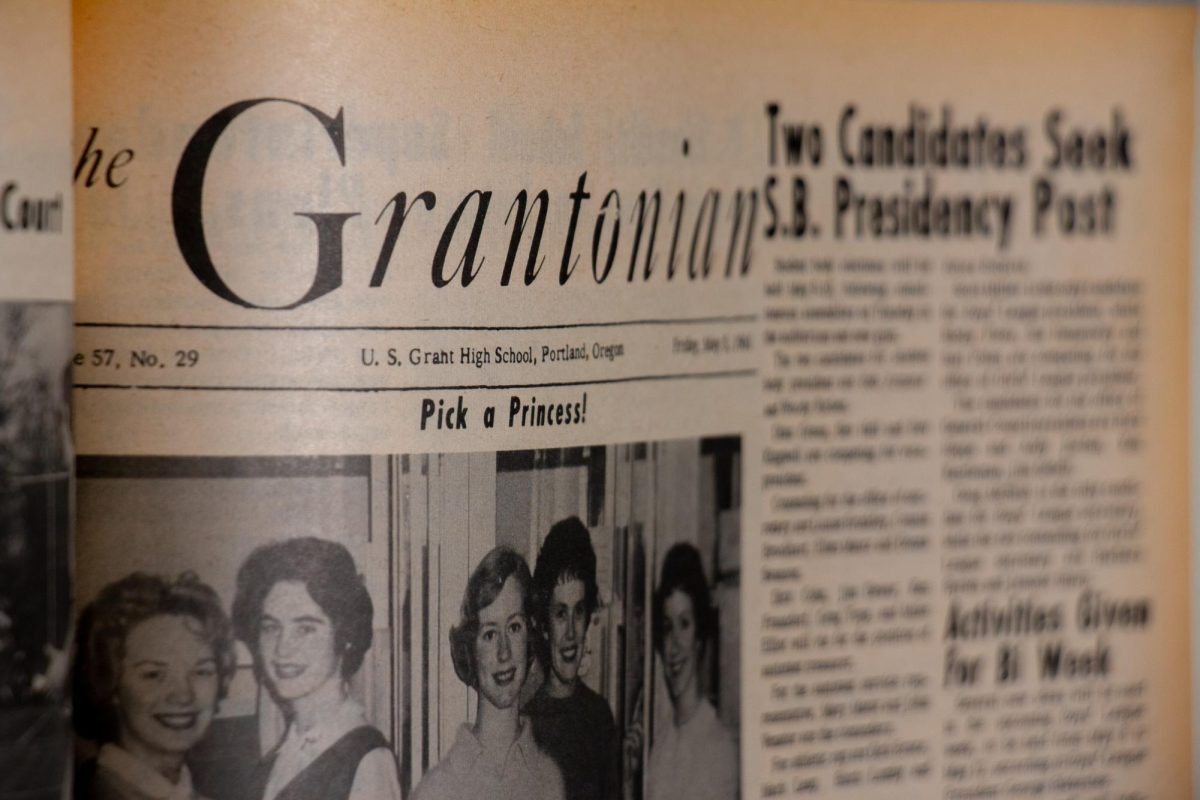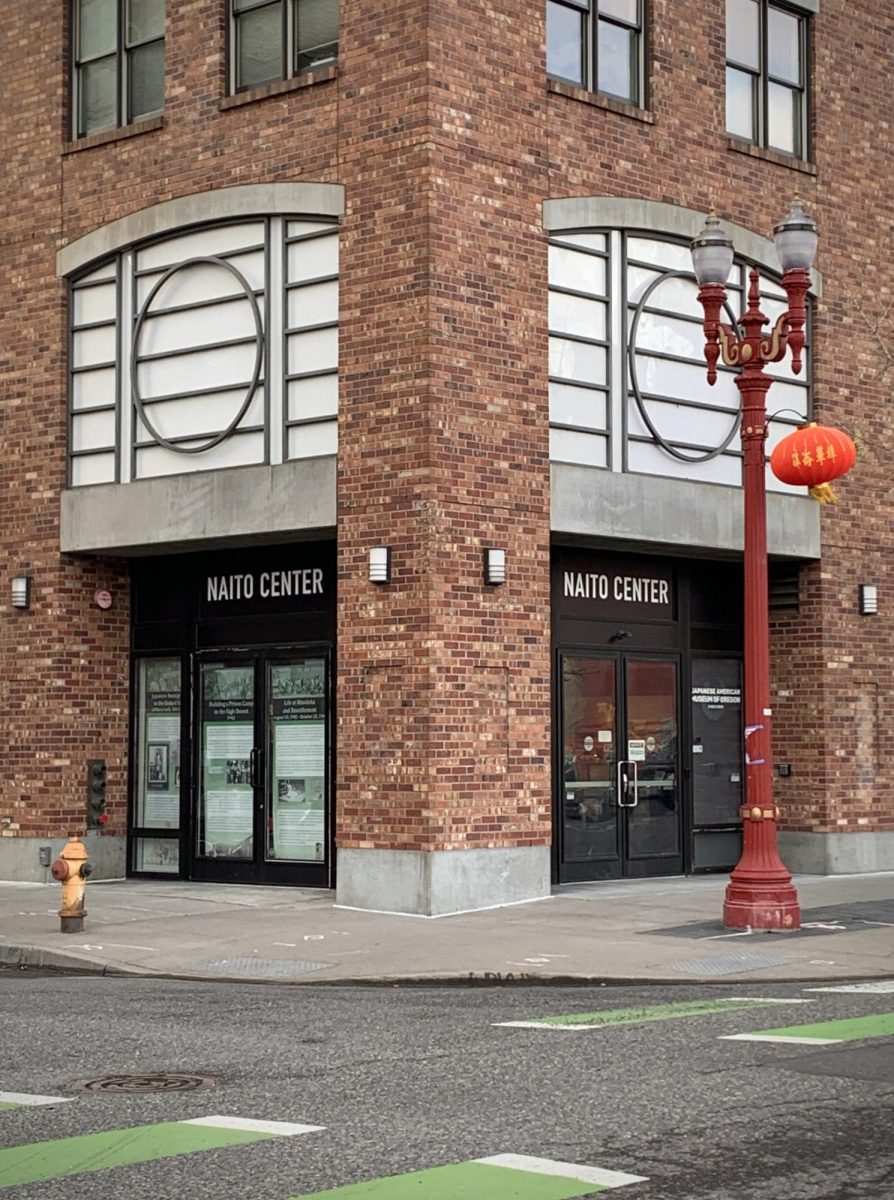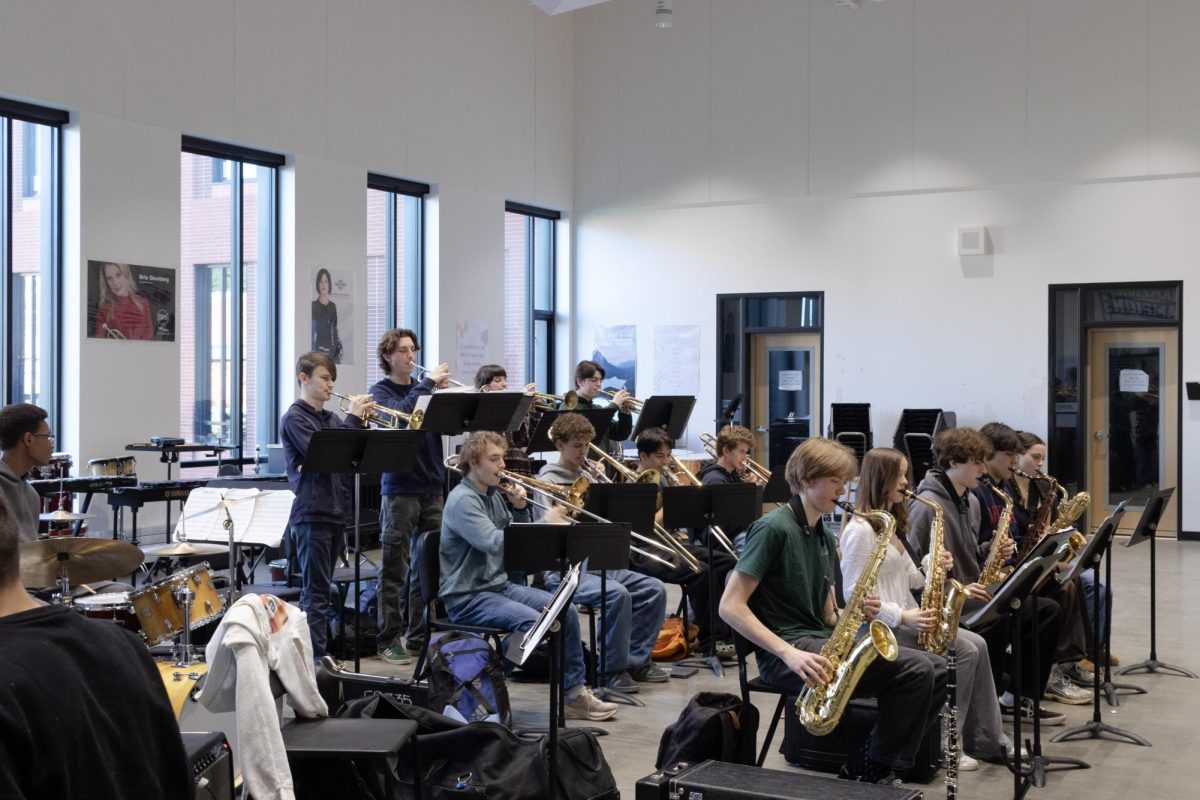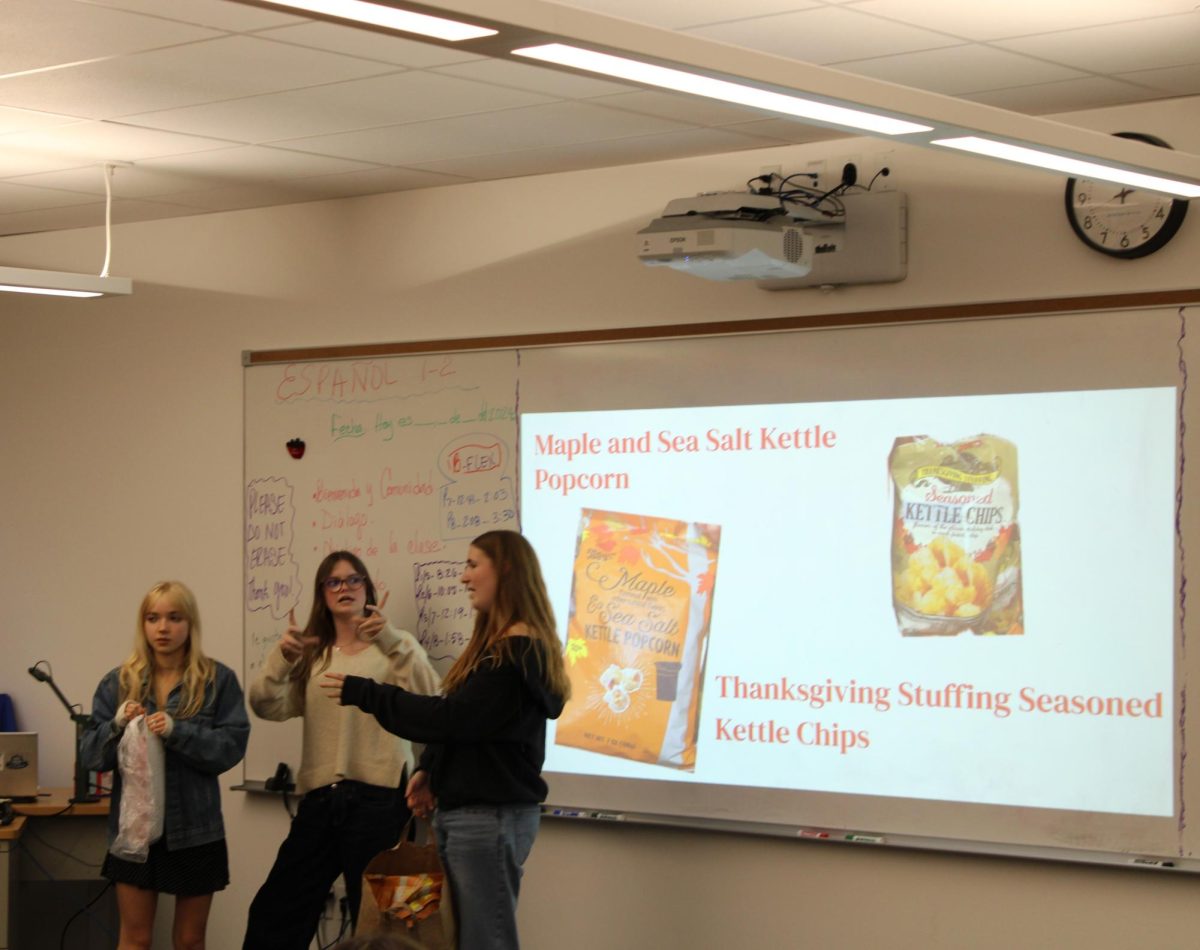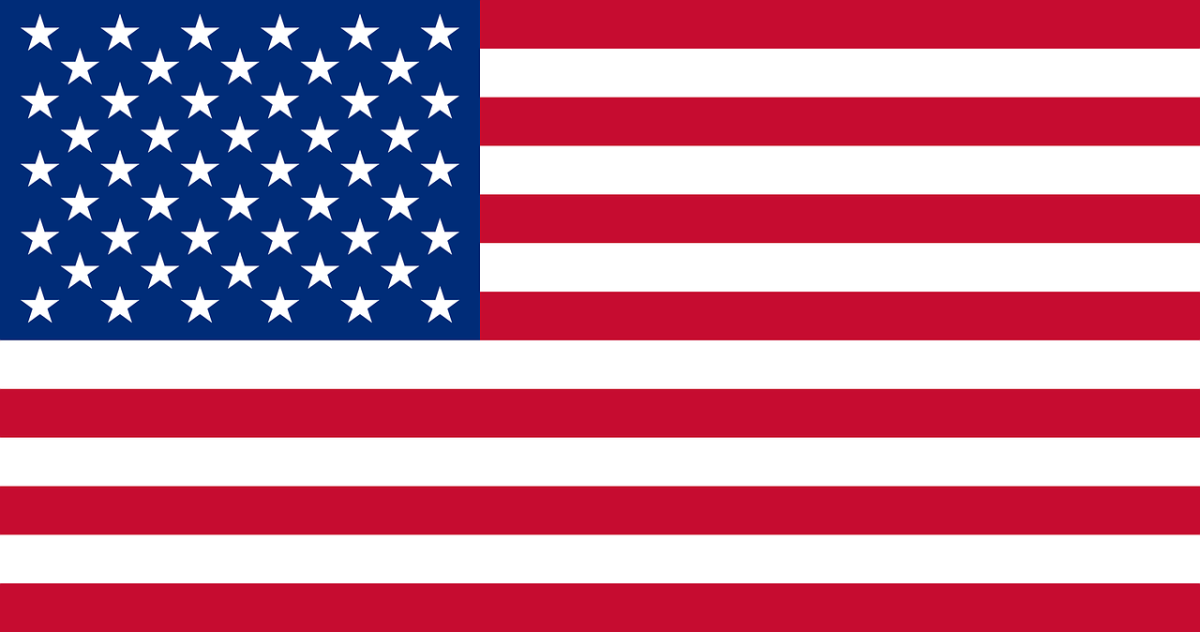* I would like to extend a special note of gratitude to Rochelle Stilwell, Darryl Motley and the Grant High School Alumni Association for all of their work ensuring that this piece could come to fruition. This would not be possible without you.
It’s 1985, and a roaring crowd fills Royals Stadium in suburban Kansas City. Seemingly impossible at the season’s beginning, here it is, happening before the eyes of millions. Viewers across the world are kept on their toes as the midwestern team enters the final game of the Major League Baseball World Series.
By all accounts, the Kansas City Royals should not have been there. The team narrowly won the American League West division by one game over the California Angels, and had managed to push the superior Toronto Blue Jays out of contention in a seven game league championship series.
On the mound for the Cardinals was the elite arm of John Tudor, a man who had just placed second in National League Cy Young Award voting. The infield starred future members of the Baseball Hall of Fame — Ozzie Smith at shortstop and Will Clark at first base — as well as reigning National League MVP, Willie McGill in center field.
None of this would matter when Darryl Motley came up to bat. The crowd, 41,658 strong, flooded the stadium with support for their hometown team. Chants of “Darryl! Darryl!” could be heard through the televisions of millions of homes nationwide.
He quickly drew a 3-1 count, then fouled it to a full three balls and two strikes with a deep drive. He hit, for good measure, two more balls foul over the backstop, then stepped off of the plate to check his swing. On first base, Royal Steve Balboni bounced eagerly, anticipating, at least, a stolen second base.
Motley called time once again to substitute his bat, a decision for which the announcers began to mock saying, “That one literally went over the top of the foul pole … How can you hit a ball that far and that hard and not want the same bat?”
Their chatter halted when a loud bang pierced the air. The ball soared with the force of a rocket deep past left field and into the hands of the Kansas City fans. Home run.
In the dugout, Motley was immediately mobbed by a throng of blue and white as the Kansas City scoreboard announced a two-run lead.
Two hours later, a long drive off the bat of Andy Van Slyke would find its final resting spot in Motley’s glove. The game was over. The series was over. The Kansas City Royals were the 1985 world champions of baseball.
“Man,” says Motley, now 65, over telephone from his home in Kansas City. “I never went any higher in baseball.”
Born in 1960 in the rural town of Muskogee, Oklahoma, Motley moved to Portland, Oregon, with his family when he was two years old. He was taught baseball by his neighborhood friends, who would frequent Irving Park to play. “I first started playing baseball on the streets in Portland,” Motley says. “From there I started playing Little League baseball, but really I learned to play baseball on the street.”
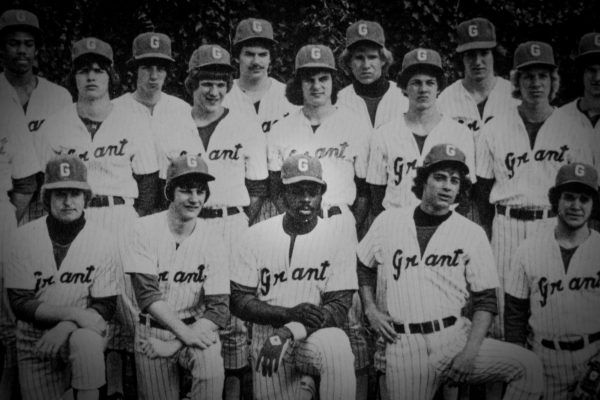
Motley grew up on 12th and Knott and attended Irvington Elementary for a few years before being bussed to Humboldt School. Dubbed “Juice,” for his slickness as the running back for Grant High School’s football team, Motley’s athletic talents earned him all-city selections in baseball, football and basketball. As a sophomore, he set the Grant weightlifting record in the lean and jerk at 235 pounds and he became the first Black athlete from Grant to win the annual Multnomah Athletic Club Scholarship for student-athletes. In 1977, he held North Eugene High School’s point guard, Parade All-American and future two-time NBA Champion and All-Star Danny Ainge, to just eight points in the state championship game.
“I just didn’t let him get the ball,” Motley later said in a 1998 interview with The Oregonian. “Later, when Ainge was playing with the Toronto Blue Jays and I was with Kansas City, he asked me if I wanted to go one-on-one. I told him no, I thought I’d just leave it where it was.”
During his senior year, Motley led Grant to three deep state playoff runs in three separate sports, placing second in basketball once again. His accolades earned him the attention of Arizona State University baseball coach Jim Brock, and on May 5, 1978, Motley signed a National Letter of Intent to play both baseball and football for the Sun Devils starting later that year.
“(Arizona State) had the best baseball program in the country at the time, and I really wanted to play baseball,” he says.
In response to Motley’s commitment, Portland Observer Sports Editor Ron Sykes would write, “I had the honor, and it was an honor, to work with the great, soft-spoken young man for one year. Darryl was a leader, but not the hollering, back-slapping type … Irving Park is proud of this young man and all wish him success in his collegiate or pro career.”
All signs seemed to point to Motley continuing his career in Tempe, but on June 6, 1978, that future would change completely: Motley was chosen by the Kansas City Royals as the penultimate pick of the second round in the annual summer amateur draft. His selection marked him as the first ever athlete to be drafted directly out of Grant High School, and remains today the highest ever General drafted in baseball.
Although Motley strongly considered attending university, the fact that the Royals’ selection promised him a clear-cut path to the majors, coupled with a $60,000 signing bonus — the equivalent of just under $300,000 today — convinced him to take the Kansas City job.
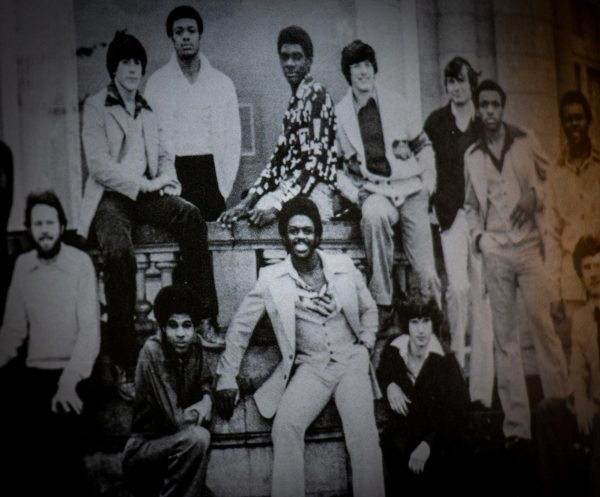
He began his professional career later that year for the Royals’ rookie-level affiliate in Sarasota, Florida. Predominantly a third baseman in his earlier years, Motley began to switch to right field as he developed in Kansas City’s minor league system due to the team’s overabundance of infielders, as well as future Hall of Famer George Brett hogging the ‘hot corner’ at the major league level.
After spending just six years developing in the various levels of the minor leagues, including brief stints with the big-league Royals in 1981 and 1983, Motley broke camp in 1984 with a permanent spot in the Royals’ starting lineup. The team began the 1984 season at home against the New York Yankees.
“I went to the ballpark early, I was the only one there,” says Motley. “I didn’t even catch the team bus to the stadium … I was sitting there and it was quiet, I was just thinking, ‘Wow, man, I’m finally here.’ It’s a crazy feeling. And then all of a sudden you come out later on that night and the stadium’s full of people and it’s a reality that you’re in the big leagues.”
Motley rapidly made his presence in the league known. In 1984 he posted 2.7 Wins Above Replacement (WAR) hitting .284/.319/.441 for the playoff-bound Royals. Despite being swept by the Detroit Tigers in the American League Championship Series, the team had amassed a 84-78 record on the back of stars George Brett and Bud Black. Motley contributed the sixth-highest WAR on the Royals that season.
“I would say that I wasn’t the best athlete that I saw along the way, but I was one of the harder working athletes,” Motley says. “I had some God-given ability, but I made it to the big leagues because I worked a little harder than the average guy. If you want it, that’s what you have to do to get it … I was able to overcome my shortcomings with hard work.”
The 1985 season began as rocky as one could imagine. Going into the mid-July All-Star break, they were seven and a half games back from the lead. Something about the restful all-star break lit a fire under the team, and by Oct. 2 the team was tied with the California Angels for first in the division. The next day, the Royals defeated the Angels 4-1 in order to obtain sole possession, which they maintained until the end of the regular season, clinching them a spot in the playoffs.
“We were a pretty good ways back (in the standings),” Motley says. “We battled hard, came back, and went into the playoffs against the Blue Jays … We just hung in there and kept battling and kept balance, and some good things started to happen. It was unbelievable how we came back and won, but we never gave up in the locker room.”
That series could easily be defined as the pinnacle of Motley’s career, with him hitting .364/.364/.636 with three runs batted in (RBIs) and four hits in five games.
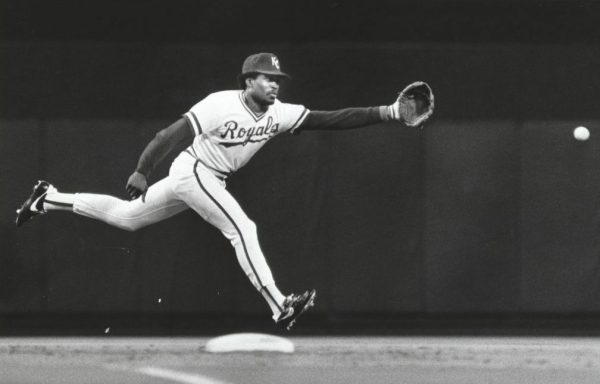
“I got the first base hit of the World Series. The umpire was like, ‘Do you want me to stop the game?’” Motley says. “I was like, ‘Why?’ He said, ‘Because you got the first base hit of the World Series, don’t you want the ball?’ By then they were throwing the next pitch and I never got it.”
In addition to contributing the first hit in the entire series, Motley also hit in the first runs of the decisive Game 7 and caught the final out. “We were betting on it, I remember, we were in the locker room or the dugout and we kind of put a wager on it, everybody had to put up a little something for who’s going to catch the last out,” he says, laughing. “I ended up catching it, but I never got the money.”
But Motley wouldn’t get much time to celebrate the team’s victory, as he was due to report to Venezuela to play winter league ball. The offseason work clearly left an imprint on the ballplayer, and Motley picked up 1986 right where he had left off. There he earned a display of his name as a finalist on All-Star ballots across the league. Despite this, Motley entered a bad slump in the latter half of the year that saw him demoted back to Triple-A Omaha on June 9, 1986. Then, 10 days before the end of the 1986 season, Motley was suddenly shipped off to the Atlanta Braves in return for relief pitcher Steve Shields.
“They were in last place, and I had been with the Royals, and we had always been hot. I thought (the Braves) were terrible,” he says.
Motley’s contract would not be renewed after the 1987 season, and the former General was granted free agency. He became a journeyman after his release, spending the rest of the 1980s with affiliates of the Montreal Expos, Cincinnati Reds and Texas Rangers until ultimately signing with the Sultanes de Monterrey of the Mexican Baseball League (LMB) in 1991. That year, Motley would hit .339 and score a franchise record 123 runs as the Sultanes won their sixth Mexican League title in a seven-game series against the Diablos Rojos del México.
It was in Mexico where Motley was approached by a scout for the Chiba Lotte Marines of Japan’s Nippon Professional Baseball (NPB). Having considered the transition since his departure from the Braves, Motley enthusiastically accepted the opportunity, and in 1992 he signed a two-year contract with the Marines.
Motley had a stellar start to his Japanese career, hitting home runs in four straight games to start the 1992 season. His streak only came to an end on Aug. 9, 1992, during a game against the rival Seibu Lions. Pitcher Hisanobu Watanabe launched a hard fastball directly at Motley’s left hand, breaking it and sidelining him for the rest of the season.
“I do believe to this day that guy hit me on purpose, intentionally,” says Motley, “because he didn’t tip his hat. In Japan, when they hit you, they tip their hat when it wasn’t intentional, and he wouldn’t tip his hat.”
After spending two seasons in the cellar of NPB, Motley returned to Mexico, where he would remain for the next three years.
“Baseball is always an enjoyable experience,” he says. “You have winning and losing seasons, but I enjoyed every season that I had. I have played on losing teams, and I’ve played on some bad teams, but it was still enjoyable. I made a lot of good friends.”
In 1995, at the age of 35, Motley left Affiliated Baseball, signing with the St. Paul Saints of the independent Northern League. He would spend the next seven years bouncing around the upper Midwest before ultimately hanging up his cleats for good in 2002.
Not yet ready for a full departure from the sport he loved, however, Motley became a coach for the Northern League’s Kansas City T-Bones. In 2004 he was promoted to manager, but retired fully from the sport after just one season.
“I was 42 years old when I decided to hang it up as a player,” he said. “My daughter was born in ‘95, and I just thought that it was time for me to come on out of baseball period at some point.”
Now, Motley runs a party organizing business in Kansas City, Missouri, where he has resided since 1984. He still comes up to Portland occasionally to visit family, although he hasn’t in recent years.
Though he has now left the sport, its long presence throughout his life has led Motley to understand the importance of hard work and dedication in achieving both personal and professional goals.
“Motivation has to come from inside of you,” he says. “It’s a tough road because a lot of people want the same thing that you do. You have to want to go the extra yard just to get what you want.”


